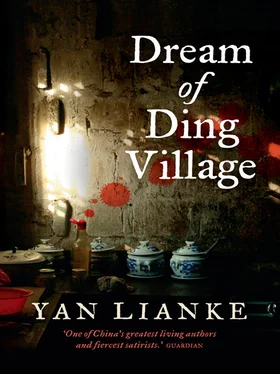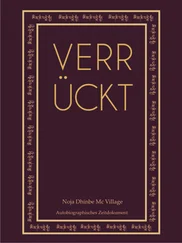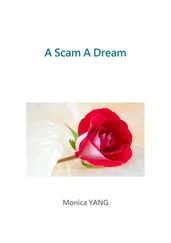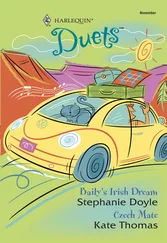Grandpa was left alone to watch over the two corpses.
3
The night passed silently and uneventfully. But the next morning at daybreak, a group of strangers appeared in Ding Village: a dozen or so stout, strong men from neighbouring villages, all between the ages of thirty and forty, with years of experience digging foundations and constructing tombs. They arrived with an elderly man whom the villagers later learned was a seventy-year-old master engraver. It took them one day and one night to dig Lingling and Uncle’s grave. In our family plot, south-west of the village, they dug an open trench next to my mother’s grave, cut an entrance into one side, and proceeded to hollow out a large underground burial chamber. It was as spacious as a small house, vastly bigger than a typical grave. By then, the fever had swept across the plain and people were dying in droves, dropping like autumn leaves. With so many bodies to bury, graves had shrunk to about half their former size. But Uncle’s was a king-sized grave, a tomb built for two, and it dwarfed even the his-and-hers graves that people had dug before the fever. Uncle’s tomb was bigger: a lot bigger.
More important than the size of the tomb was the care that went into its construction. Working with a knife, shovel and miniature spade, the elderly engraver covered one wall of the tomb with an elaborately carved map of Dongjing, the capital city of the ancient Song dynasty (now the modern city of Kaifeng). His depiction of Dongjing’s famed pavilions and pagodas, gardens and lakes, temples and ancestral halls was like a painting in the palace of an emperor. It lent the tomb a classical air, a whiff of elegance and antiquity.
On the opposite wall, he engraved a landscape of modern-day Kaifeng that included high-rises and landmark buildings, fountains and public squares, the city hall and municipal communist party committee offices, thriving commercial districts and crowded shopping streets lined with vendors’ booths. Bold calligraphy above the classical landscape identified it as ‘Song Dynasty Capital’. The modern depiction was entitled ‘New Kaifeng’. Although the landscapes were a bit rough — not as fine as if they had been painted on a scroll, say — they were still an artistic marvel, a rarity in these parts. It was as if all the wonders under the sun had converged on Ding Village, to live in vivid detail on the walls of a tomb. The news spread quickly through the village, and people began flocking to see it.
They came in droves. They arrived in groups, like travellers on a package tour.
Everyone who climbed into the tomb emerged singing its praises. What exquisite craftsmanship, what elaborate carvings, what lifelike detail! The dragons and phoenixes on the Dragon Pavilion. . so real that you could reach out and touch them. And the crowds of people. . it was as if you could hear their voices. As the wondrous tales passed from person to person and spread through the village, the tomb drew even more curiosity-seekers. Young and old alike came to gawp at Uncle and Lingling’s grave. It was as if an imperial palace had suddenly sprung from the soil, or a long-lost city been unearthed on the plain.
The day that Uncle and Lingling were to be buried, people flocked to their grave like sightseers at an imperial tomb. It was just after sunrise, and the eastern horizon was a crimson lake, a sea of fire. The fields were brilliant with light, and shining golden stalks of wheat that now stood nearly knee-high. Around the fields there were clumps of grass in shades ranging from jade green to dull yellow. Uncle and Lingling’s twin grave was located at the far end of our family’s plot. Two mounds of soil stood on either side of the trench marking the entrance to their tomb. Even though the feet of many visitors had trampled the earth, the smell of freshly turned soil was still thick and fragrant in the air.
Villagers climbed down into the trench and emerged chattering and clicking their tongues in amazement. When others emerged from the trench after inspecting the tomb, they would ask: ‘Can you believe it?’ And the newcomer would say something like: ‘It’s almost worth dying for.’ Or ‘I wish someone would build me a tomb like that.’ Or ‘If I could be buried in there, I’d take the fever a hundred times over.’
Soon, the men who were helping to bury Jia Genbao and Ding Xiaoyue arrived to see the tomb. They were Ding Village’s most experienced excavators, gravediggers and bricklayers. The other villagers made way for them, so that they could see for themselves. As they descended into the tomb, the men seemed sceptical, but they emerged smiling and thoroughly convinced. One of them, a middle-aged gravedigger, asked the young man who was sitting outside the tomb, guarding the tools: ‘Did you do those carvings?’
‘No, my uncle did.’
‘Where’d he learn to carve like that?’
‘It’s a family tradition.’
‘You think he’d be willing to do some carvings in the two graves we’re digging?’
‘This is an imperial-style tomb,’ the young man answered. ‘Back in the old days, you’d have to be an official of the fourth rank to get a tomb like this. Of course, nowadays things are different, but even my uncle still needs permission from the higher-ups to do these carvings. Without a signed and sealed order from a government official, he can’t do it. You can’t go around carving this stuff on any old tomb.’
‘So how did Ding Liang manage it?’
‘His brother Ding Hui is chairman of the county task force.’
That ended the conversation. The local craftsmen and gravediggers went back to the village. It was nearly time for the other villagers, who had promised to help bury Genbao and Xiaoyue, to begin preparing the bodies and placing them in the coffins that waited outside their families’ front gates. The two coffins had been constructed some time before, after the big tree-felling. Both were made of four-inch-thick planks of paulownia wood, with three-inch-thick planks of cedar on either end. The ends of the caskets, engraved with large funeral ideographs touched up with gold or silver paint, glittered like metallic flowers. The coffins were nice enough, but the graves Jia Genzhu and Ding Yuejin had dug for their younger brothers were nothing compared to the tomb my father had built for his younger brother. Uncle’s was an imperial-style tomb, befitting a high-ranking official. And my father had filled it with engravings of Kaifeng’s glorious past and present, so that Uncle might be laid to rest in the company of that inspiring scenery.
Jia Genzhu and Ding Yuejin thought the only pity was that the village adulterers should occupy such an elaborate tomb. They couldn’t help but take it personally, as a loss of face. Fortunately, their younger brothers had fine coffins, the sort usually reserved for the oldest and most venerable villagers. The sort of coffins usually afforded only by well-to-do families with a certain amount of power and influence. Caskets that reflected the wealth and status of their occupants, or their occupants’ relatives.
The two families lived on the same lane, just a few doors away from each other. As the villagers milled around the coffins at the two front gates, they talked about how nice the caskets looked, and how Jia Genzhu and Ding Yuejin had done their brothers proud, and although their graves weren’t nearly as fancy as the one Ding Hui had built for his brother, wasn’t it nice that they’d managed to come up with two such lovely coffins. .
In that instant, two trucks drove into the village and parked in front of Uncle’s house. Each truck contained a coffin wrapped in several layers of cloth and heavy paper. When the coffins had been unloaded, they were placed on long wooden benches and carefully unwrapped.
Читать дальше












